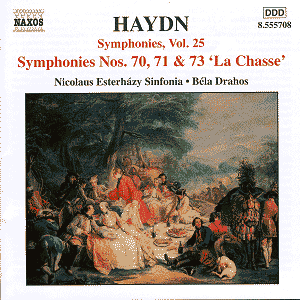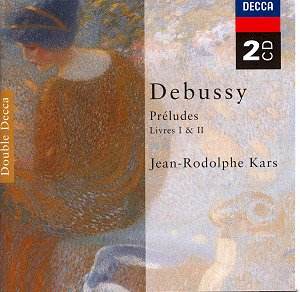 Composer: Joseph Haydn
Composer: Joseph Haydn
Works: Symphony No. 70 in D major, Symphony No. 71 in B flat major, Symphony No. 73 in D major ‘La Chasse’
Performers: Nicolaus Esterhazy Sinfonia, Bela Drahos (conductor)
Recording: Rec 24-27 July 2000, Phoenix Studio, Budapest
Label: NAXOS 8.555708
Joseph Haydn, often heralded as the father of the symphony, occupies a unique position in the classical canon, particularly during his middle period around 1780. The three symphonies featured in this recording—Nos. 70, 71, and 73—reflect a vibrant evolution in his compositional style. They offer a rich tapestry of orchestral color and thematic innovation, emerging from the ashes of the Esterházy fire of 1779. This backdrop of personal and artistic resilience informs the character of these works, particularly in Symphony No. 70, where the integration of orchestral parts reveals Haydn’s burgeoning mastery over instrumental dialogue and texture.
The performance led by Bela Drahos displays a commendable grasp of Haydn’s idiom, although it occasionally falters in intensity. Symphony No. 70 opens with a fiery first movement that could benefit from a sharper articulation of its jagged themes. Drahos opts for a moderate approach, which, while polished, sometimes lacks the visceral energy that the music demands. The orchestral balance is generally well-managed, but the phrasing could have been imbued with a greater sense of urgency. In contrast, the slow movement shines with graceful elegance, showcasing the strings’ lyrical capabilities and articulating the thematic repetitions of the finale with both clarity and charm.
Symphony No. 71 presents a shift in orchestral forces, utilizing a smaller ensemble devoid of trumpets and drums, yet it does not suffer from this restriction. The work opens with a slow introduction that creatively explores rhythmic variations, leading into the lively Allegro con brio. Here, Drahos’s interpretation is marked by a refined sense of pacing, although the Adagio—an extended theme and variations—calls for more vivid contrasts in tone and dynamics to fully engage the listener. The minuet emerges with a satisfying directness, while the finale benefits from the string players’ dexterity, producing a whirlwind of technical prowess.
The highlight of this set is undoubtedly Symphony No. 73, ‘La Chasse,’ which encapsulates Haydn’s playful spirit and inventive orchestration. The symphony’s nickname, derived from its thematic content, enhances its appeal, and Drahos’s interpretation embraces this whimsy. The finale, notable for its climactic hunting fanfares, is executed with palpable vigor, allowing the horns to lead the charge into an exhilarating conclusion. The decision to omit trumpets throughout the performance, while controversial, lends an unusual intimacy to the work, allowing for a distinctive listening experience that diverges from more traditional renditions.
The recording quality from NAXOS is commendable, presenting a clear and balanced sound that allows the nuances of the orchestration to resonate. However, there are moments where the recording’s texture feels somewhat opaque, particularly in Symphony No. 71, where the subtleties of the Adagio struggle to emerge. Compared to other benchmark recordings, such as those by the Vienna Philharmonic or the London Symphony Orchestra, Drahos’s interpretations may not command the same level of dynamism, but they nonetheless offer a thoughtful exploration of Haydn’s craftsmanship.
This release stands as a testament to Haydn’s enduring legacy and the richness of his symphonic output. The interpretations, while occasionally lacking the edge that some listeners may desire, reveal a nuanced understanding of the composer’s intentions. The Naxos recording contributes to the ongoing appreciation of Haydn’s symphonic works, providing insights that are both engaging and enlightening. As such, this collection serves as a worthy addition to the discography of one of classical music’s most significant figures, inviting listeners to delve deeper into the world of Haydn’s symphonic imagination.



